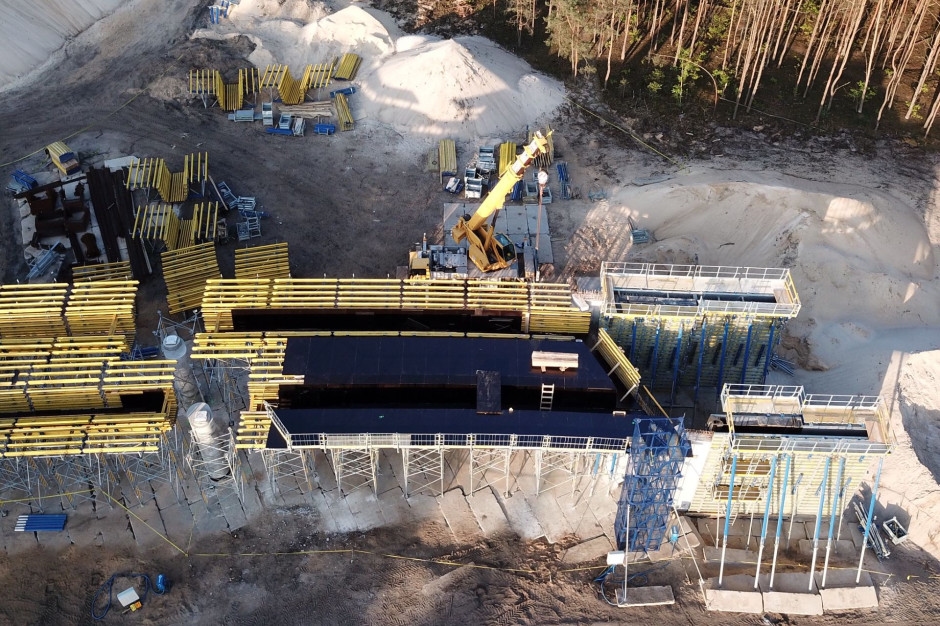Repolonizing the economy? Yes, if it brings results.

- Poland has completely overhauled its public procurement regulations. They now give contracting authorities the right to exclude non-EU contractors from tenders and to grant special location benefits to Polish entities.
- Participants in Friday's conference, held at the University of Warsaw, entitled "The Concept of Local Content in Public Procurement – Trends, Law, Practice," spoke about their experiences and the implications of the regulatory changes described above for our economy and major investments.
- Filip Czernicki, CEO of CPK, admitted that the company's management has learned from the mistakes of others and will no longer repeat them in its own actions. Piotr Piela, vice president of PEJ, noted that "repolonization of the economy does not mean a 'cash grab' and is not a form of protectionism."
- Meanwhile, economist Prof. Adam Noga of Kozminski University stated that any solution that deviates from market principles, such as "local content," must be temporary and have a period of evaluation. If it fails, it should be eliminated.
For decades, Poland has been allowing foreign capital in without any restrictions, hoping that Western technologies would also develop Polish companies and that our managers would acquire new skills, allowing us to compete globally. However, what the French and Chinese, who benefited from this strategy, achieved, has not entirely succeeded in Poland.
The government therefore "moved the lever 180 degrees" and, under the slogan of re-polonizing our economy, through amended provisions of the Public Procurement Act, significantly and indefinitely restricted access to the Polish market for contractors from outside the European Union.

But was it really a step in the right direction? – this was one of the topics discussed by panelists during the conference entitled "The Concept of Local Content in Public Procurement – Trends, Law, Practice," which took place on Friday (October 24) at the University of Warsaw (UW).
The meeting, which was attended by legal and economic experts, as well as the largest investors in Poland, i.e. the CEOs of companies such as Polish Nuclear Power Plants (PEJ) and the Central Communication Port (CPK), was organised by the Public Procurement Law Association (SPZP).
The government is introducing repolonization in public procurementIt's worth recalling that the slogan of repolonizing the economy first appeared in public in May of this year. Prime Minister Donald Tusk announced it during a speech at the Warsaw Stock Exchange (WSE). He had already announced that the government would take appropriate steps to protect the interests of Polish contractors in public procurement contracts involving State Treasury Companies (SSP).
Poland, alongside Slovakia, also introduced new, far-reaching regulations to the Public Procurement Law in July this year, which include changed criteria for evaluating offers.
These criteria include awarding additional points for a specific share of components manufactured in Poland or the European Union and excluding entities from outside the European Union from the proceedings.
Moreover, on September 15, during the "Energy from Poland - Local First" forum, which was devoted to supply chains for the offshore wind energy sector, representatives of the largest state-owned companies signed a declaration on increasing the participation of Polish companies in the second phase of construction of offshore wind farms in the Baltic Sea.
Learning from others' mistakes and problems with finding Polish contractorsHow does the application of the new regulations and declarations by state-owned companies look in practice? This was discussed by, among others, Magdalena Dankowska from Ørsted , a company that, together with the PGE Group, is jointly building offshore wind farms in the Baltic Sea, specifically projects called Baltica 2 (with a capacity of approximately 1.5 GW) and Baltica 3 (with a capacity of approximately 1 GW).
As the speaker admitted, no Polish company won the more than 20 tenders organized for the project. Companies with domestic capital are indeed present in the project, but only as subcontractors.
In turn, CPK CEO Filip Czernicki admitted that the company's management had learned from the mistakes of others. He cited the example of the construction of Berlin-Brandenburg Airport, where the investor was the German federal state, which also favored local contractors in tender procedures.
– It ended up with the local contractors being so dispersed that chaos and delays reigned on the construction site, which were the result of, among other things, numerous defects and faults – Czernicki reported.
As the president emphasized, CPK is trying to balance the domestic component in tender procedures, giving a chance to those Polish companies that have references, experience, and the necessary technologies.
For example, in the tender for the construction of a luggage system, only three bidders submitted their applications, and then, during the tender, one of these companies took over the other and ultimately there were only two of them.
– The reality is that there are not many suppliers of the systems we need at CPK, and we know that the fewer offers, the higher the price of the service – said the CPK president.
He also cited another example – rolling stock for the CPK. He noted that Polish manufacturers lack the technology to produce trains capable of operating at speeds of up to 320 km/h, and they are also not interested in acquiring it solely to produce 30 trains for the CPK. "It's like forcing the factory in Tychy to build a Formula 1," Czernicki compared.
Local contractors are safer for the investor, but...In turn, the vice-president of PEJ, Piotr Piela, pointed out that "repolonization of the economy does not mean a cash grab" and it is not a form of protectionism, but an opportunity for Polish companies to acquire new competences.
Piela cited, for example, the certificates that Polish nuclear power plant contractors will receive from the American Society of Mechanical Engineers (ASME). These documents certify very rigorous safety and quality standards and grant their holders access to global markets, including the US and Canada.
As the vice-president of PEJ noted, his company is committed to creating equal opportunities for local entities, as this is also in the interest of the investor.
Local contractors are safer because they settle their accounts in Polish currency, so there is no currency risk, they are local, so the risk of delivery delays is lower than in the case of intercontinental haulage chains, and they are not exposed to customs duties.
Piela pointed out that although the procurement law has been changed, there has been no discussion about which Polish suppliers and which areas of the economy the government considers key and wants to develop and protect with these regulations.
Meanwhile, economist Prof. Adam Noga of Kozminski University stated that although local content is economically unprofitable and carries many risks, why shouldn't we try it?
“It’s economically unprofitable, but why should we remain a virgin while everyone else does it?” the professor said jokingly.
On a more serious note, the professor emphasized that any solution that departs from market rules, such as local content, must be temporary and have an evaluation period.
For example, the 500 plus benefit, which was intended to improve the fertility rate, should also be introduced for a specific period, and after its expiry, if it did not meet expectations, it should be abolished, the economist said.
Marta Kosarz-Sobotka, vice-president of the construction company NDI, reminded that in other EU countries access to the market is not easy and that the word "local" means local, not European, therefore companies with Polish capital and paying taxes in Poland should be rewarded in public proceedings.
She also admitted that there are areas in which Polish companies do not yet have sufficient competences and in such cases a solution consisting in admitting a foreign entity to the proceedings would work, provided that it creates a consortium with a local entity and transfers its experience and competences to it.
wnp.pl

